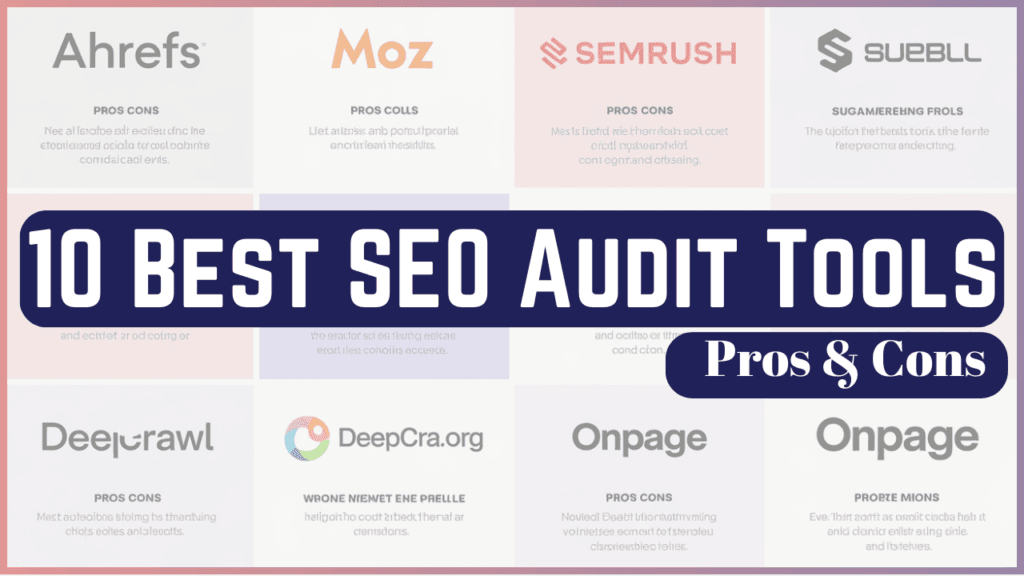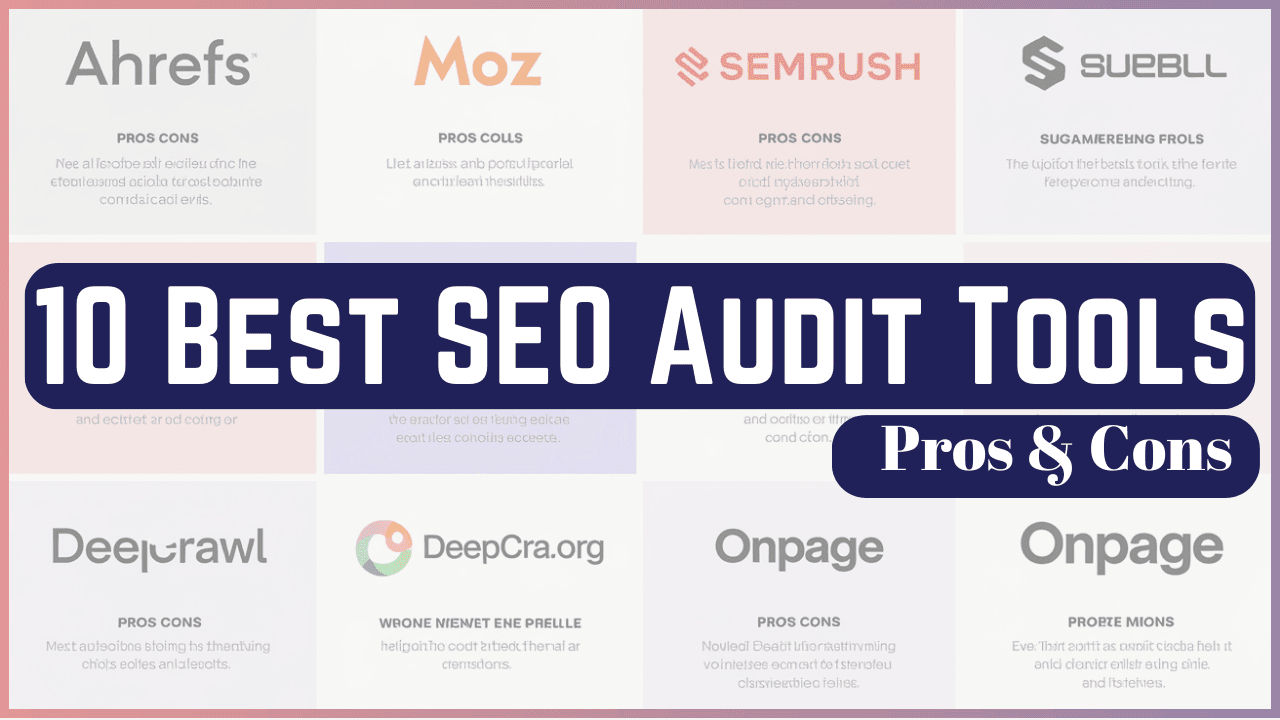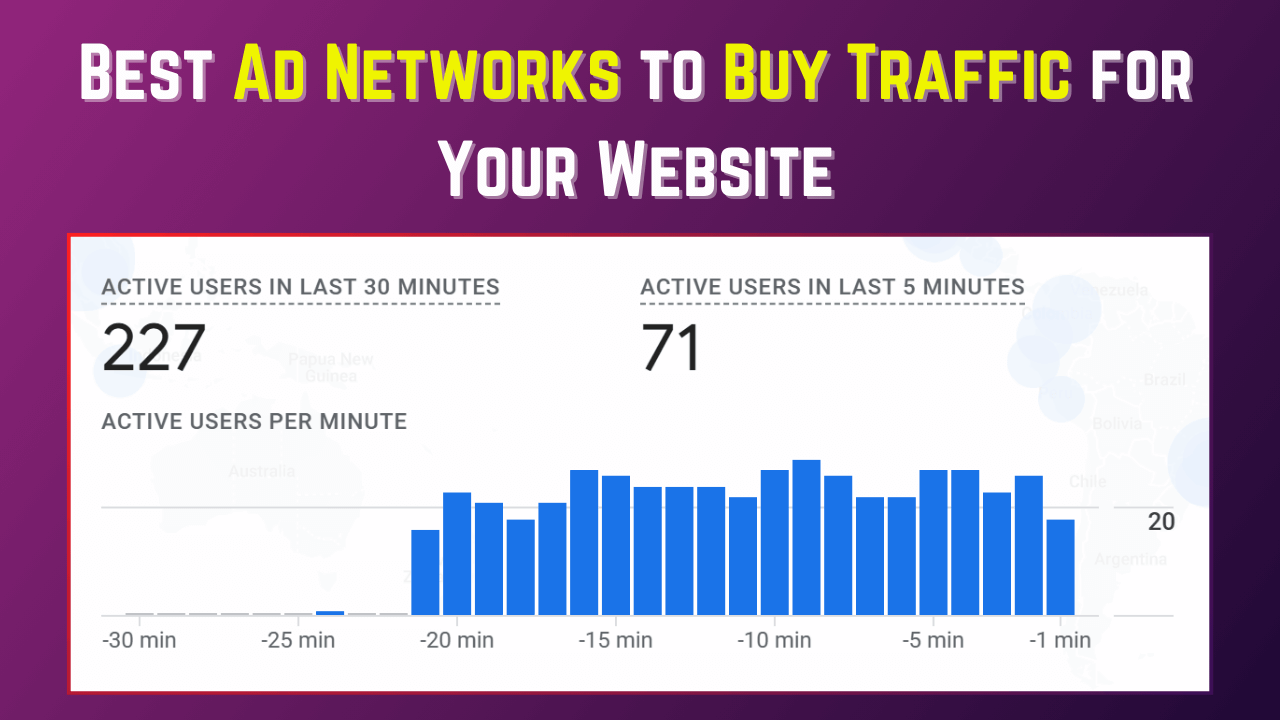The world of digital marketing is constantly evolving, and as such, the constant check of your website’s SEO performance cannot be compromised. Whether a small business owner, marketer, or even an SEO professional, an SEO audit tool can help you identify technical issues, improve your content strategy, and rank higher on the search engine.
With so many tools out in 2024, it can be overwhelming to choose the right one. This article showcases the 10 best SEO audit tools of the year along with their pros and cons and a comparison table to help decide which to use.

What Is an SEO Audit Tool?
An SEO audit tool is software to analyze your website’s performance in areas like:
- On-page SEO: Keyword usage, meta tags, content quality.
- Technical SEO: Site speed, mobile usability, crawl errors.
- Backlink Analysis: Link quality and domain authority.
- Competitor Insights: Keyword and ranking comparisons.
These tools make it very easy to find and fix SEO problems, so your website can rank better in search results.
Top 10 SEO Audit Tools of 2024
Here’s a detailed look at the 10 best SEO audit tools available this year, including some of their amazing features and shortcomings.
1. SEMrush
SEMrush is an all-in-one SEO tool, offering comprehensive auditing of your website’s SEO health. This SEO tool is best for marketing teams and agencies looking for a complete SEO solution.
- Pros:
- Detailed keyword analysis.
- Excellent competitor analysis tools.
- Intuitive user interface.
- Cons:
- Expensive for small businesses.
- Limited data on local SEO.
2. Ahrefs
The best tool in terms of analyzing backlinks is Ahrefs, which conducts massive technical SEO audits and competitor tracking. This tool is best for backlink audits and content marketers.
- Pros:
- Industry-leading backlink database.
- Easy-to-use interface.
- Regular updates and data accuracy.
- Cons:
- Lacks some on-page SEO features.
- No free plan is available.
3. Screaming Frog SEO Spider
This is a desktop-based tool that would be fantastic to do technical SEO audits with, finding broken links, duplicate content, crawl errors, and so on. This SEO tool is best for website developers and technical SEO experts.
- Pros:
- Comprehensive technical analysis.
- Great for large websites.
- Free version available with limited features.
- Cons:
- Steeper learning curve.
- Not cloud-based.
4. Google Search Console
This free tool by Google offers insights regarding your website from the perspective of search engines. This is one of the best SEO tools useful for beginners and budget-conscious users.
- Pros:
- Free to use.
- Real-time indexing insights.
- Accurate keyword and traffic data.
- Cons:
- Limited features compared to paid tools.
- No competitor analysis.
5. Moz Pro
Moz Pro is a versatile tool that combines SEO audits with keyword research and rank-tracking capabilities.
- Pros:
- User-friendly interface.
- Solid keyword research tools.
- Great for local SEO.
- Cons:
- Limited backlink analysis compared to competitors.
- Slower crawl speed.
- Best For: Small to medium-sized businesses.
6. Sitebulb
Sitebulb is another desktop-based tool offering in-depth website audits with visualized data reports. This SEO tool is best for technical SEOs and agencies.
- Pros:
- Excellent visualization of audit data.
- Customizable reports.
- Handles JavaScript-heavy websites well.
- Cons:
- Requires installation.
- Lacks keyword tracking features.
7. Ubersuggest
Ubersuggest owned by Neil Patel is a beginner-friendly SEO tool that supports the very basic feature of auditing. This SEO tool is useful for freelancers and small businesses.
- Pros:
- Affordable pricing.
- Simplified interface.
- Great for keyword research.
- Cons:
- Limited advanced features.
- Slower data updates.
8. DeepCrawl
DeepCrawl DeepCrawl is a cloud-based SEO tool that puts website health and technical audits at the forefront. This is very useful for enterprise-level websites and large agencies.
- Pros:
- Scalable for enterprise websites.
- API integration.
- Comprehensive reporting tools.
- Cons:
- Expensive for smaller businesses.
- Steep learning curve.
9. Seobility
Seobility is an affordable SEO tool with site audits, keyword tracking, and backlink analysis features. This SEO tool is best for startups and small businesses.
- Pros:
- Affordable pricing.
- Easy-to-use interface.
- Covers all basic SEO needs.
- Cons:
- Limited database for backlinks.
- No mobile app.
10. WooRank
WooRank provides actionable recommendations for improving your website’s SEO performance. This is a very useful SEO tool for small businesses and beginners.
- Pros:
- Great for beginners.
- Integrates well with Google Analytics.
- Simple reporting.
- Cons:
- Limited features compared to competitors.
- Can be pricey for advanced users.
Comparison Table: SEO Audit Tools 2024
| Tool | Best For | Free Plan | Key Feature | Cons |
|---|---|---|---|---|
| SEMrush | Agencies | No | All-in-one SEO solution | Expensive |
| Ahrefs | Backlink analysis | No | Robust backlink data | Lacks on-page features |
| Screaming Frog | Technical SEO | Yes (Limited) | In-depth technical audits | Not cloud-based |
| Google Search Console | Beginners | Yes | Direct Google insights | No competitor analysis |
| Moz Pro | Local SEO | No | Easy rank tracking | Slow crawl speed |
| Sitebulb | Visualization | No | Customizable visual reports | Requires installation |
| Ubersuggest | Freelancers | Yes | Affordable keyword research | Limited advanced features |
| DeepCrawl | Enterprise websites | No | Scalable audits | Expensive |
| Seobility | Startups | Yes | Cost-effective audits | Limited backlink data |
| WooRank | Beginners | No | Actionable recommendations | Limited features |
How to Choose the Right SEO Audit Tool
When selecting an SEO audit tool, consider the following factors:
- Budget: Tools like Google Search Console are free, while SEMrush and Ahrefs are premium options.
- Skill Level: Beginners may prefer tools with simple interfaces, like WooRank or Ubersuggest.
- Specific Needs: For example, choose Ahrefs for backlink analysis or Screaming Frog for technical SEO.
- Scalability: Enterprise businesses should consider tools like DeepCrawl or Sitebulb.
Conclusion
Making or breaking your digital marketing strategy in 2024 will be having the correct SEO audit tool. Advanced tools are meant for professionals, such as SEMrush and Ahrefs, while starter and freelancer types of tools are Ubersuggest and Seobility. Choose what will work best according to your requirements, budget, and expertise.
No tool is perfect, but the right one can help you uncover those hidden opportunities, fix critical errors, and get your website ranking better in search engines. So go ahead, take a few options out there, and see where your SEO efforts lead to measurable results.
FAQs
What is the best SEO audit tool for a beginner?
Google Search Console and Ubersuggest are both ideal for beginners because they are pretty simple and affordable.
Multiple SEO Tools: Can I use more than one tool to get better results?
Yes. At one time, I was using both Screaming Frog for technical audit and Ahrefs for Backlink analysis, and that gave me very comprehensive insight.
How often should I perform an SEO audit?
It’s advisable to perform an SEO audit quarterly or whenever there are major updates to your website.
What is the most affordable SEO audit tool?
Ubersuggest and Seobility are among the most affordable tools for startups and small businesses.
Are there free SEO audit tools?
Yes, tools like Google Search Console, Screaming Frog (free version), and Seobility offer free options.






